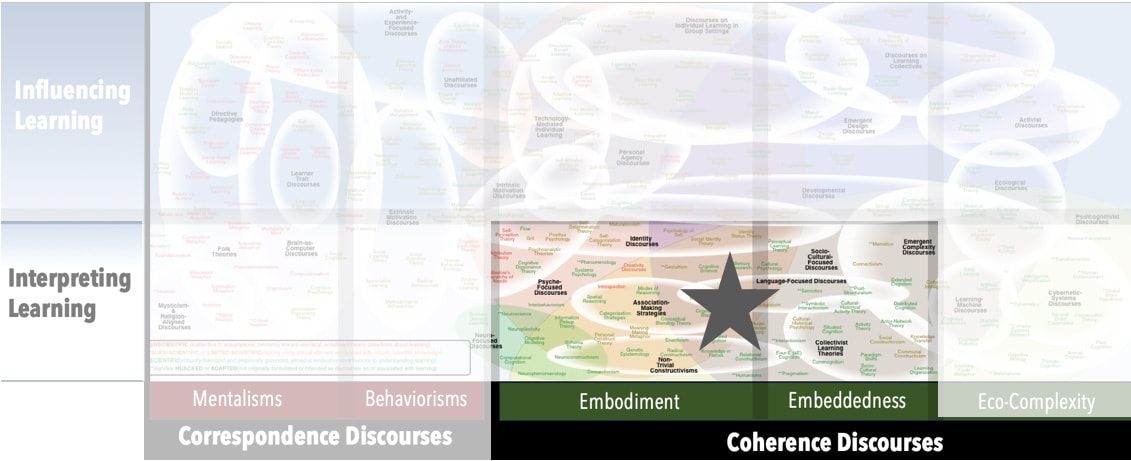Focus
Ways that humans connect, combine, and extend their webs of meaningPrincipal Metaphors
- Knowledge is … scope of possible meanings and interpretations
- Knowing is … personal meaning
- Learner is … a web maker
- Learning is … construing associations
- Teaching is … orienting perceptions and juxtaposition experiences
Originated
1940sSynopsis
All Coherence Discourses posit some form of dynamic network structure – among ideas and/or neurons and/or persons and/or species … and so on. Those discourses that are concerned specifically with the emergence of an individual’s conceptual understandings tend to focus on webs of meaning – that is, networks of interpretation that are rooted in the knower’s experience. Association-Making Strategies are some of the ways that humans establish and elaborate these webs of meaning.Commentary
For the most part, Association-Making Strategies are relative newcomers to discussions of human learning. Until well into the 20th century, the assumption that humans were essentially logical thinkers prevailed, and that assumption seems to have blinded researchers and educators to the way that humans really construe their meanings. Humans are association-making creatures, and formal logic is actually a relatively minor member among the many strategies used to make sense of the world.Map Location

Please cite this article as:
Davis, B., & Francis, K. (2022). “Association-Making Strategies” in Discourses on Learning in Education. https://learningdiscourses.com.
⇦ Back to Map
⇦ Back to List
